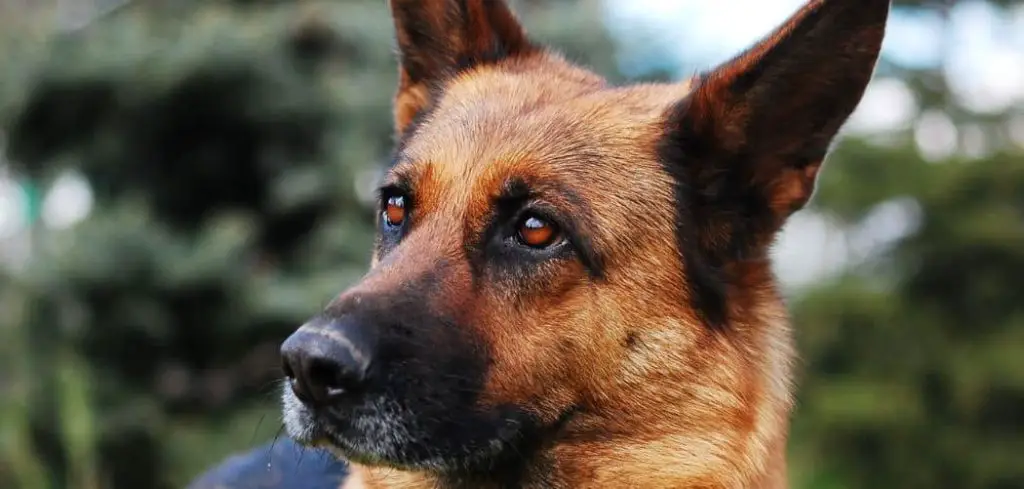Coughing in dogs can be unsettling, especially when it happens suddenly and without any other obvious symptoms. While it may seem minor compared to coughing paired with lethargy, vomiting, or breathing issues, even a lone cough can point to underlying health concerns that should not be ignored.
We outline the common causes of dog coughing with no other symptoms, what you can do at home, and when to seek veterinary help.
Table of Contents
Dog Coughing No Other Symptoms — Why It Happens
When a dog is coughing but has no other symptoms, the cause is often related to irritation or mild airway involvement. This could be due to kennel cough, allergies, mild infections, tracheal irritation, or even an object that’s briefly stuck.
While less alarming than coughing with fever, appetite loss, or breathing difficulty, it can still be a sign of early disease or something that may worsen if left untreated.
Causes range from infectious conditions to chronic irritation and should be assessed carefully, particularly if the cough is persistent.

Dog Coughing No Other Symptoms: Possible Causes
Kennel Cough (Infectious Tracheobronchitis)
Kennel cough is one of the most common causes of coughing without other visible symptoms.
It’s a contagious respiratory condition that spreads in places where dogs gather, such as kennels, parks, or grooming facilities.
The cough is typically dry and hacking, sometimes sounding like a goose honk. Dogs may otherwise appear perfectly normal—active, eating, and playful—making it easy to dismiss. However, untreated kennel cough can progress into pneumonia in some cases.
Read more: Dog Vomiting No Other Symptoms (Here’s what it means)
Tracheal Irritation or Collapse
Some dogs, especially small breeds like Yorkies and Pomeranians, are prone to tracheal issues. Mild irritation may cause intermittent coughing without any other signs.
In early stages, the cough is usually triggered by excitement, pulling on a leash, or after exercise. If ignored, it can worsen over time, leading to more frequent coughing or even breathing struggles.
Allergies
Dogs can suffer from environmental allergies much like humans. Dust, pollen, smoke, or household cleaning products can irritate the airways and cause occasional coughing.
Often, allergy-related coughing is seasonal or situational. The dog may cough after exposure to irritants but otherwise act healthy. However, long-term exposure can contribute to chronic airway inflammation.
Foreign Object or Irritation
Sometimes a dog inhales a small particle, like grass, dust, or food crumbs, which irritates the throat or airway. This may cause a sudden bout of coughing but without ongoing illness.
If the coughing persists or the dog seems to be gagging, struggling, or pawing at its mouth, a lodged foreign body could be the cause. This requires immediate veterinary attention.
Heartworm Disease (Early Stage)
Heartworm disease is a serious condition, but in early stages, coughing may be the only visible symptom. Dogs may still seem otherwise healthy, with normal appetite and activity.
As the disease progresses, however, it can cause fatigue, weight loss, and serious heart or lung complications. Even without other signs, a cough warrants testing in areas where heartworm is prevalent.
What to Do If Your Dog Is Coughing But No Other Symptoms
If your dog is coughing but seems otherwise healthy, observe carefully. Keep track of when the cough occurs—after exercise, at night, or randomly—as this can help your vet.
Limit exposure to irritants like smoke, dust, or perfumes. Use a harness instead of a collar to reduce pressure on the trachea if coughing happens during walks.
Monitor your dog’s energy, appetite, and breathing. If the cough is mild and short-lived, it may resolve on its own. However, if it continues for more than a few days, it’s best to consult your vet.
Avoid giving human cough medicine, as many are toxic to dogs. Instead, focus on providing a calm environment, fresh water, and rest while you monitor symptoms.
When to Call or Visit Your Vet
Call your vet if your dog’s cough lasts longer than a week, worsens, or changes in sound. A persistent dry cough, especially in small breeds, may suggest tracheal collapse.
Seek immediate veterinary help if coughing is paired with labored breathing, blue gums, gagging, vomiting, or collapse. These are signs of a medical emergency.
Also, if your dog has not been vaccinated against kennel cough or tested for heartworm recently, a vet visit is strongly recommended.
Read more: Dog Coughing Up Blood and Not Eating (Why it happens)
Key Takeaway
A dog coughing with no other symptoms may seem harmless, but it can be an early sign of issues ranging from kennel cough to allergies or even heartworm disease.
While occasional coughs aren’t always an emergency, ongoing or worsening coughing should never be ignored.
Monitor your pet closely, reduce potential irritants, and seek veterinary advice if symptoms persist. With timely care, most causes of simple coughing can be managed effectively, keeping your dog healthy and comfortable.
